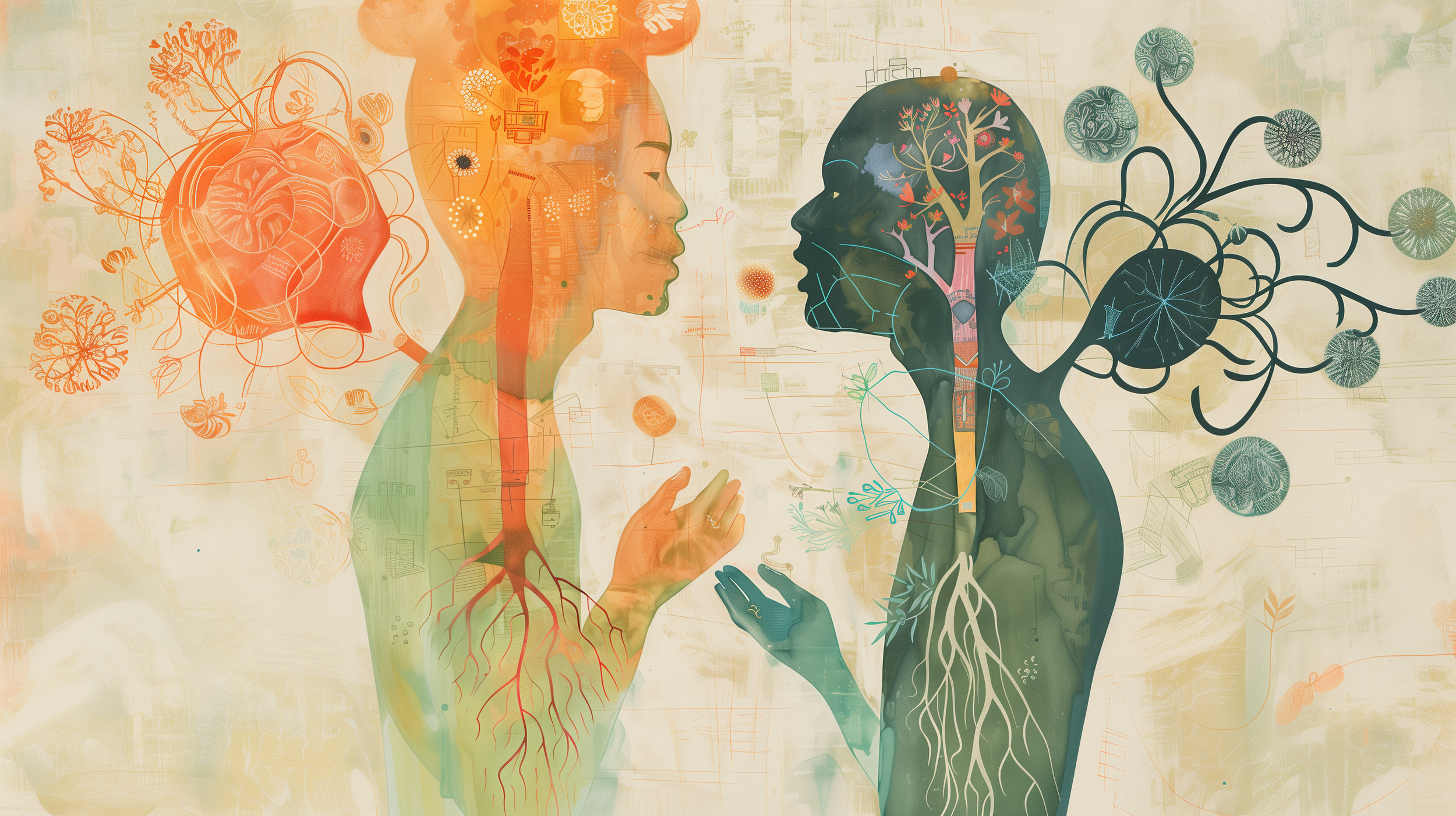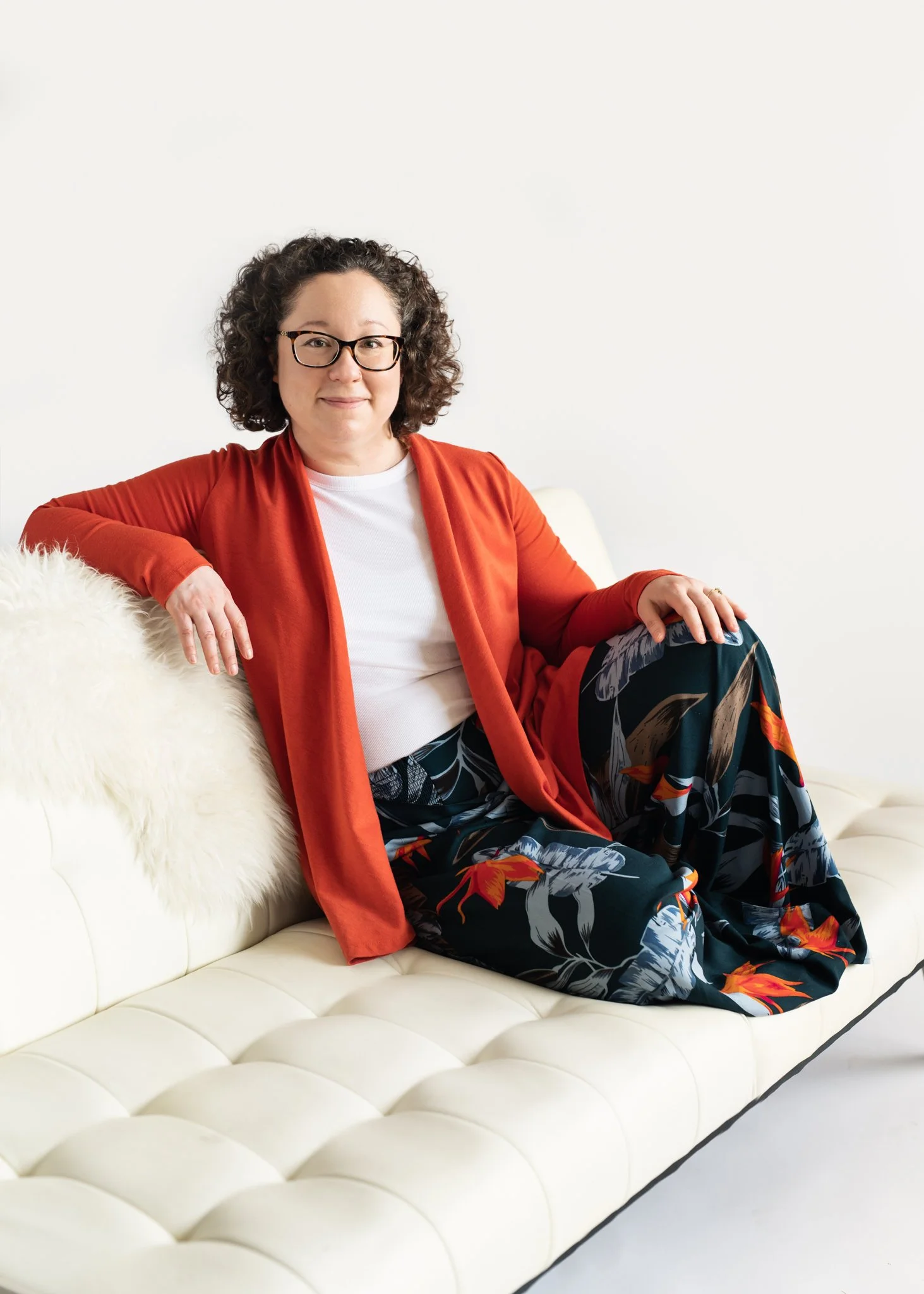
Reimagining neurodivergent communication from OUTSIDE the medical model
For high-masking gifted, autistic, & 2E+ professionals

We cannot live securely in a world which is not our own, in a world which is interpreted for us by others. An interpreted world is not a home.
Part of the terror is to take back our own listening, to put our ears to our own inner voices, to see our own light, which is our birthright, and comes to us in silence.
Elaine Bellezza (source)Reclaiming
Communication
What if neurodivergent communication isn't something to fix? What if, instead, we approach cross-neurotype communication the same way we approach any intercultural exchange: with curiosity, mutual respect, and shared responsibility for making it work?
Most conversations about neurodivergent communication focus on getting one person to change—usually the one who is neurodivergent. But when we stop asking "what's wrong?" and start asking "what's actually happening here, and how can we all participate more skillfully?", then communication becomes a more collaborative, co-creative activity.
In fact, fields that specialize in studying communication, like linguistics and intercultural communication, understand that real-world, effective communication relies not on assimilation or masking, but on concrete interactional skills like:
Transparency about different styles and needs rather than hiding or guessing
Context-checking instead of making assumptions about what others want or expect
Repair that acknowledges breakdowns as normal and fixable, not personal failures
Negotiability that treats communication norms as something we create together, not fixed rules
Mutual adaptation where everyone adjusts to make it work, not just one person
When we recognize that gifted and autistic people think, process, and express themselves in fundamentally different ways—and that these differences are sophisticated and purposeful, rather than deficits—we can develop communication skills that actually work for everyone involved.
I'm fascinated by the questions this opens up:
How do different neurotypes create meaning together?
Can neurodivergent people become skillful at being different in communication?
What can we learn when we expand our view of neurodivergent communication from one of a strictly personal deficit, to that of interpersonal pragmatic misalignment and systemic equal access?
These aren't just academic questions—they're invitations to reimagine how we connect with each other, and opportunities to use communication as a more effective tool for creating belonging, justice, and neurodivergent thriving.
Get a freebie when you subscribe
text here
Ana María B Call, MA
Communication Scholar & Community EducatorI'm a 3E (Gifted + autistic + Latina) linguist, interculturalist, and former civil rights worker, specializing in neurodivergent communication as intercultural communication.
My work synthesizes tools and research across linguistics, interpretation, intercultural communication, and language access to build more accurate, effective frameworks for understanding and facilitating cross-neurotype communication.
My expertise stems from a graduate degree in linguistics, as well as 10+ years experience facilitating communication across differences, and building systems inside organizations to identify and reduce communication barriers to equal access.
As a neurodivergent scholar and parent, I approach this work with both rigor and lived understanding of what's at stake when communication systems fail to account for neurodivergent ways of being.
Disciplines I Integrate:
Sociolinguistics & Applied Linguistics
Intercultural Communication Theory
Language Access per Title VI of the US Civil Rights Act
Interpretation Studies
Futures Thinking & Imagination Work



